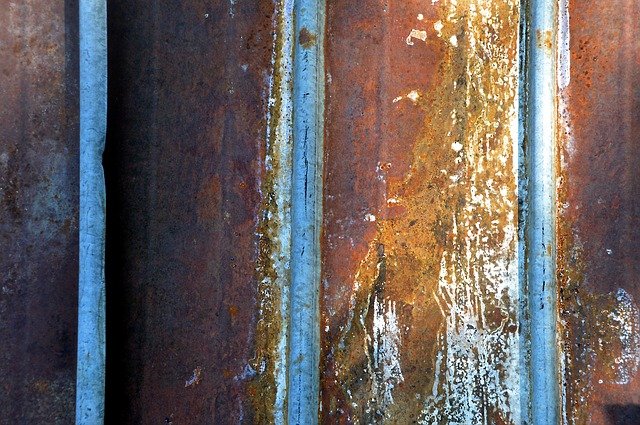
Career Advice
Corrosion Engineering: a Fascinating, Little-Known Career Option
Read a summary using the INOMICS AI tool
Technically speaking, corrosion is the gradual destruction of materials by a chemical or electrochemical reaction with their environment. Although it is commonly believed that corrosion is only associated with metals, they are not the only materials susceptible to it. Non-metallic materials, including plastics and glass, can also corrode.
What is so important about corrosion? It has significant costs to society. Besides the estimated $2 to $4 trillion lost every decade to corrosion in the United States, corrosion can compromise people’s safety. A dam could burst, for example, or equipment needed in an emergency can become unusable. It is in the public’s best interest that corrosion be mitigated as much as possible.
Knowledgeable professionals are needed to mitigate the scourge of corrosion so that assets can have a longer service life. However, since the corrosion engineering industry is not well-known, not many people are employed in this industry—making corrosion engineering a highly niche discipline.
What is corrosion engineering?
Corrosion engineering is the application of chemistry, physics, mathematics, and engineering to develop and implement ways to mitigate the damage caused by corrosion. Corrosion cannot be stopped completely, but it can be slowed significantly. Those employed in the industry are tasked with mitigating the impact of corrosion as much as possible.
There are several common methods to minimize the impact of corrosion. A corrosion engineer, may, for example, design and implement a cathodic protection system. Cathodic protection works by connecting a metal at risk of corroding to a metal that is more easily corroded. The metal being protected does not corrode because the “sacrificial metal” corrodes instead.
Proper material selection is also a key strategy in fighting against corrosion. Sometimes a material is used in an environment that it is not well suited to, leading to increased corrosion rates. Using materials that are appropriate for the environment in which they serve is a major guard against corrosion.
Protective coatings serve as a barrier between a corrodible material and their surrounding environment. Depending on the environment in question, the protective coating could be, for example, paint, a fluoropolymer coating (which is resistant to heat, water, salt, and chemicals), or a metallic coating. These coatings can add years to an asset’s service life.
In the case where the environment is a fluid, chemical treatment may be an appropriate corrosion mitigation method. Chemicals are selected, and their concentrations and volumes are chosen based on the chemistry and the fluid’s operating conditions, including temperature, pH, and contaminant concentration. A chemical treatment program serves to alter the chemistry of the fluid to make it less corrosive.
What is so fascinating about corrosion engineering?
Corrosion is like a plague—silent and debilitating. Industry professionals are those rare people charged with combating it. Understanding the interaction between a material and its environment, and how even a small change in either can mean the difference between days and decades of service life, is thrilling. Particularly fascinating is identifying corrosion damage mechanisms and their sources. Looking for small clues to eliminate certain damage mechanisms and to validate others while conducting an inspection feels like forensic pathology. Corrosion investigations can be compared to detective work.
Starting a career in corrosion engineering
Both engineers and technologists are employed in the field of corrosion engineering. For engineers, completing a four-year degree in a relevant engineering discipline is usually the first step towards a career in corrosion engineering. Engineering disciplines typically involved in the industry are mechanical engineering, civil engineering, chemical engineering, materials engineering, marine engineering, metallurgical engineering, and corrosion engineering.
For technologists, a two-year diploma is generally sufficient. Technologists should hold a diploma in the disciplines above or in other relevant fields, including instrumentation engineering, chemical technology, or environmental technology. Many companies offer internships or co-op positions related to corrosion engineering, making them a perfect entry point into the industry.
Where are corrosion engineers and technologists employed?
Those trained in corrosion engineering are employed in industries where corrosion is a particularly significant safety or economic issue. They are most commonly found in the oil and gas industry, but are also commonly found in the manufacturing, civil infrastructure, and marine industries.
 Professional associations related to corrosion engineering
Professional associations related to corrosion engineering
The most well-known professional association for corrosion engineering was NACE International, formerly the National Association of Corrosion Engineers. In January 2021, NACE International merged with the Society for Protective Coatings to form the Association for Materials Protection and Performance.
There are many regional and national corrosion engineering professional associations as well. These include the Institute of Corrosion (United Kingdom) and the European Federation of Corrosion (European Union). These associations serve to further the knowledge and understanding of corrosion among its members and to increase interest in the industry among members and the public.
Further education in corrosion engineering
NACE International and the Society for Protective Coatings offer certification courses related to corrosion engineering, including in cathodic protection, coating inspection, and coating application. These certifications are highly valued in industry as they guarantee a deep knowledge of corrosion issues.
A day in the corrosion engineering industry
No two days working in the industry are ever the same. Those involved in this profession spend a lot of time in an office, but also a lot of time in the field. They may have long days in the field or may go home on time, having spent their entire shift in the office.
In the field, industry professionals are primarily responsible for travelling to inspect corrodible assets for damage. They must get a full accounting of the assets they are dealing with. If an asset is damaged or has failed, an investigation must be conducted. Testimony from those working with the asset, such as equipment operators, is particularly valuable in these investigations.
Because of the niche market for corrosion mitigation products, industry professionals often meet with chemical, material, and equipment vendors to identify and select products that will best serve to mitigate corrosion. Other field work may include industry professionals being on hand during a construction project to consult on corrosion-related issues or delivering chemical samples to a lab for analysis.
The work of industry professionals in an office environment varies. Writing investigation reports is a common task. A complete picture of asset damage, including testimony, chemical reports, inspection findings, and construction standards, must be painted. Supporting documentation is compiled and analyzed to identify corrosion damage mechanisms as accurately as possible. Having as much accurate information on hand as possible also allows for recommendations to be made to avoid similar damage.
Designing cathodic protection systems, identifying damaged assets requiring repair or replacement, overseeing projects to address the assets’ damage, and interpreting reports are all other common tasks done by professionals in the industry.
Job prospects
The United States Bureau of Labor Statistics does not specifically list job prospects for corrosion engineers. The closest profession, materials engineers, will experience a projected job growth of 2% between 2019 and 2029. As infrastructure and other assets age and begin to fail, especially in the oil and gas industry, more corrosion professionals will be needed to manage them.
In closing
Despite the corrosion engineering industry not being a well-known or commonly chosen career option, it is an industry of great importance that keeps the world running as it should. Without professionals in this industry, infrastructure would crumble, people would be put into danger, and trillions of dollars in economic output would be lost. The corrosion engineering industry is a fascinating option worth checking out. It could be the career path you’ve been looking for.
-
- Master's Program
- Posted 7 months ago
Master Economics for Smart Cities and Climate Policy
Starts 7 Sep at Ecole Polytechnique in Palaiseau, France -
- Conference
- (Hybrid)
- Posted 3 months ago
6th Edition of International Conference on Green Chemistry and Renewable Energy
Between 18 Jun and 20 Jun in Barcelona, Spain
-
- Postdoc Job
- Posted 1 week ago
Postdoctoral Research Position in the Research Training Group "CUDE" (3 years)
At University of Bielefeld and Bielefeld University, Center for Mathematical Economics (IMW) in Bielefeld, Germany










